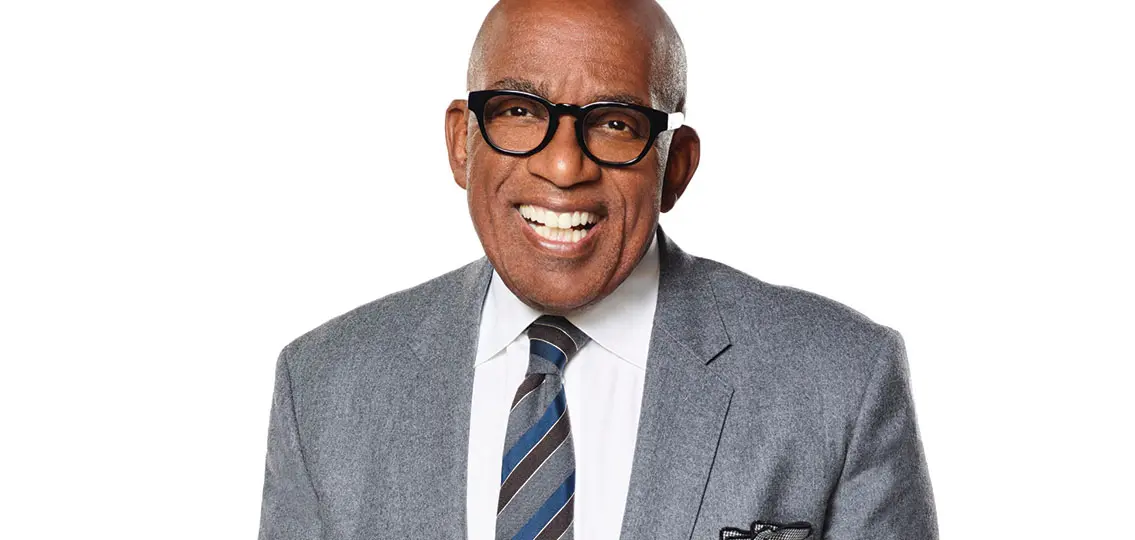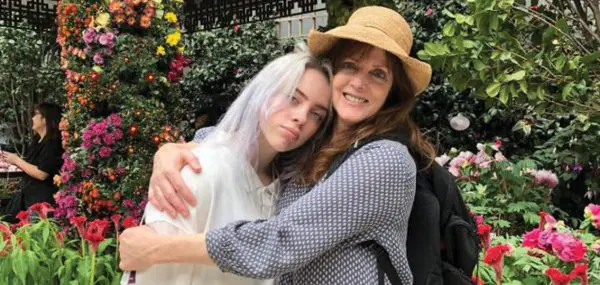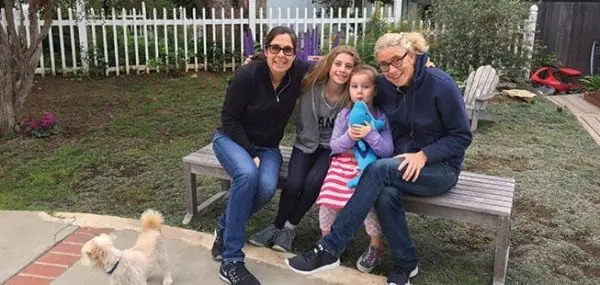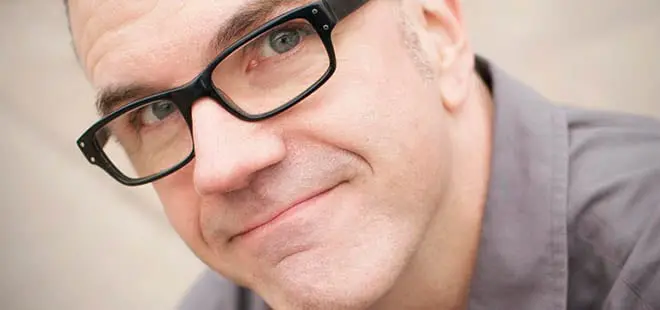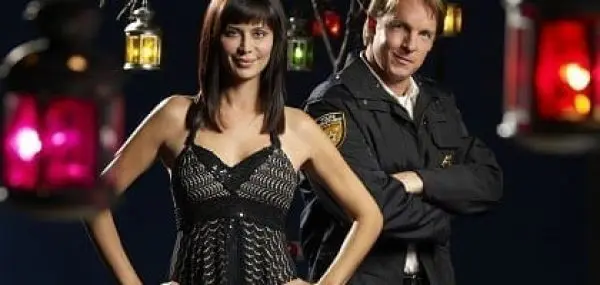You know Al Roker as a weatherman and host of NBC’s Today Show, but he’s also a father of three: an adult (Courtney, age 31), a college student (Leila, age 20), and a teenager (Nick, age 16). We chatted with him about the show, parenthood, and the fact that his kids sometimes find him annoying. (Stars—they’re just like us!)
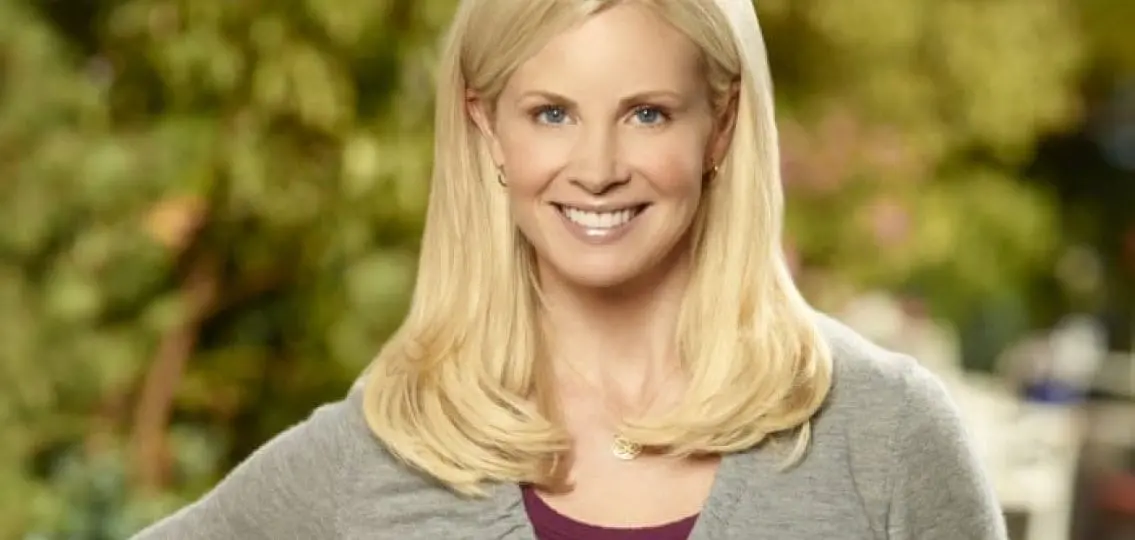
Q: How do you prioritize family when you have a busy work schedule?
Roker: I think it’s a work in progress. I’m at an age now where it’s a little easier to do that than when I was younger and trying to build a career. If I do have any regrets, it’s that I wasn’t home as much as I should have been or wanted to be. You can’t have it all, whether you’re a man or a woman. I don’t think it is possible—something’s got to give.
Q: I imagine it’s gotten easier now that your kids are older.
Roker: That’s the thing. Savannah, Hoda, Carson, Craig [at the Today Show], they’re all always talking about how they’re constantly tired. I’ve got a teenager, a Gen Z, and a Millennial, whereas they all have toddlers and little kids. Courtney is completely out of the house—although they’re never completely out of the house. Leila’s a sophomore in college, and Nick’s a freshman in high school, so he doesn’t need the attention that their kids do.
Q: I love that your kids think you call them too often.
Roker: They do. What I find is, they basically vanish on you when you’re trying to reach them. When they want to reach you, they are all over you, and they want to know why you didn’t answer right away. My dad used to call home constantly and talk to us on his bus route. Each time he’d finish a run, he’d find a payphone and a couple of dimes, and make a call. I feel that pull during the day to call and say, “What’s going on?” I like to touch base.
Q: You took a trip just with Leila to Sequoia National Park. What did it do for your relationship with her?
Roker: You just kind of discover things about each other. I knew she wasn’t crazy about birds, but I realized, “Oh my God, you’ve almost got a full-blown phobia about this.” She’s also funnier than I realized. I’ve always known she had a sense of humor, but she’s got a really good sense of humor. When you take each other out of your comfort zone and have one-on-one time, you get a chance to see different things.
Q: Do you do one-on-one trips with all your kids?
Roker: With Leila, that was part of her college tour. With Courtney, we had a different experience with her journey, and we did do a couple of trips on our own. I’ve done that with Nick, too. He’s gone on a couple of shoots with me. One that was really terrific was the launch of a weather satellite. I had never been to a satellite launch, and he’s never been to a space launch, so it was fun.
One of the best lessons I learned from my dad was that each child is an individual. I was not very athletic. I was not particularly outgoing. I really loved cartoons and animation. That’s how he connected with me. My dad was very athletic, but he didn’t force me to be an athlete because that’s not who I was. He connected with me on what excited me. That’s how I learned to connect with my kids.
Q: Have there been times when that’s a struggle?
Roker: I think everything’s a struggle. If it’s something you care about, you work at it. You don’t always succeed, but you try your best. I think your kids know that. Your kids don’t expect perfection. They just expect you to try. Learning to say you’re sorry goes a long way. I remember my dad apologizing once. He thought I had done poorly in class and, in fact, the teacher had made a mistake, and he apologized. I never forgot that. I have to remember to apologize. Just because I’m the dad doesn’t mean I’m right. I have to be reminded of that. My wife, Deborah, reminds me of that constantly.
Q: How are you and Deborah different as parents?
Roker: I think we complement each other. We alternate in the good cop/bad cop role. My default a lot of times can be no, and then I can be talked into yes. Hers can be, “You’re not doing that at all,” and then one of us becomes an advocate for that kid, or we plead the case of why we don’t think they should do a certain thing.
Q: What did you find to be the hardest thing about raising teenagers?
Roker: My first two were girls, and there’s a lot going on with the mood swings, the hormonal changes. All those things that make you realize you don’t have the answers, and you’ve got to be flexible, and let it go, and know that it’s not about you, it’s about them. Deborah has helped me with that. I got to take a deep breath, and let it go. Odds are, whatever emotional storm that your kid comes out with, it’s going to pass.
Q: Do you have one last piece of advice for parents?
Roker: Don’t sweat the small stuff. Your kids are pretty resilient. Just accept you’ve made mistakes, and learn from them. Kids are very accepting of mistakes, as long as you acknowledge them and learn from them.
